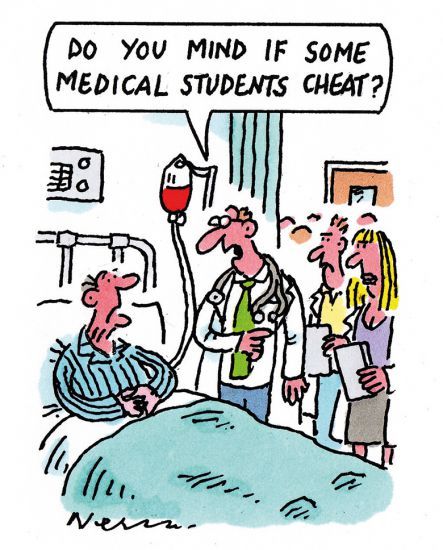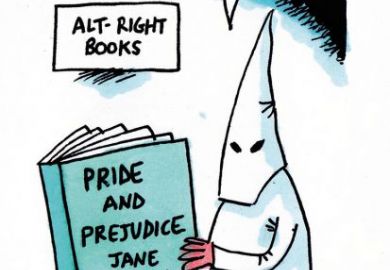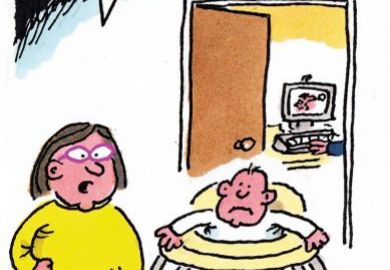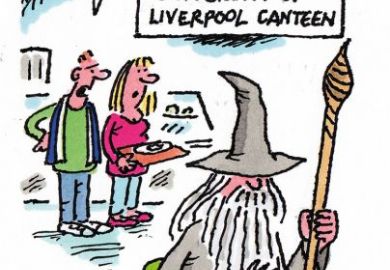
Some Conservative MPs still show a discernible lack of enthusiasm for the good ship Global Britain’s course towards a buccaneering Brexit future. As Article 50 was invoked on 29 March, Jo Johnson, the universities and science minister, tweeted: “Great to spend day @Cern – terrific example of ongoing pan-European research.” Spending this “momentous day” near Geneva learning about the contribution European research is making to our understanding of the universe is not exactly waving a Union flag while supping a pint on the white cliffs of Dover: pro-Remain Mr Johnson will no doubt be watched closely for further signs of subversion. But he will have cheered those hoping that the UK remains part of European and EU research networks after Brexit.
Universities around the world are paying more attention to monitoring graduate progression and outcomes, a trend taken in an innovative direction by China’s prestigious Tsinghua University, which has insisted that students must learn to swim before they can graduate. Under the rules, students starting from September onwards must demonstrate that they can swim at least 50 metres using any stroke. The university said swimming was a “key survival skill” and the institution’s president, Qiu Yong, added that it was “made compulsory for all students because it also improved physical fitness”, the BBC News website reported on 28 March. China is known for its fiercely competitive educational culture and, at Tsinghua, it is now literally sink or swim.
The University of Oxford must have expected warm, touchy-feely headlines when it unveiled 20 portraits of famous former students and staff intended to “promote greater diversity”. It reckoned without the Daily Telegraph, whose 30 March edition expressed alarm that while the portraits included “Ken Loach, the left-wing film director, the BBC journalist Reeta Chakrabarti…and Kelsey Leonard, the first Native American to graduate from Oxford in 2012,” they did not include Theresa May. Chris McGovern, chairman of the Campaign for Real Education, said: “It is quite extraordinary the prime minister is not there. They are punishing her for Brexit.” Oxford objected that the list was based on nominations from current staff and students – of which there were none for Ms May. The university should take a lesson from North Korea – where displaying a portrait of the supreme leader is compulsory for every home, workplace and school – and get painting pronto.
Four months in, Donald Trump’s presidency continues to be dogged by questions about his past. But, while the US leader faces continuing scrutiny about his election campaign’s links with Russia, he has finally settled fraud claims launched by former students of his for-profit learning enterprise, Trump University. The New York Times reported on 31 March that a federal judge had approved a $25 million (£20 million) payout to more than 3,000 claimants who alleged that they had been cheated out of tuition fees through high-pressure sales techniques and false claims about what they would learn. Judge Gonzalo Curiel, who had been accused of bias by Mr Trump during the election campaign on account of his Mexican heritage, rejected a last-minute objection to the deal from one student, who wanted to see the president tried on criminal racketeering charges. But on the charge levelled by Mr Trump’s opponents that the venture will prove to be a metaphor for his presidency – “promising hardworking Americans way to get ahead, but all based on lies” – the jury is still out.
“Medical students at a top university have been caught cheating in a final year exam, just months before they were due to graduate as NHS doctors,” the Daily Mail reported on 28 March. Around 270 undergraduates at the University of Glasgow will be forced to re-sit a test after two students were caught on social media sharing information ahead of an “objective structured clinical examination”, in which students must undergo tasks such as interpreting an x-ray, making a diagnosis or examining a patient. As “there are limited scenarios the examiners can create, students are not allowed to discuss situations they have come across themselves or know to have been used in previous exams”, the Mail said. One student said: “We’re all so angry that a select few people think it’s OK to cheat, because now we are all tainted.”
Register to continue
Why register?
- Registration is free and only takes a moment
- Once registered, you can read 3 articles a month
- Sign up for our newsletter
Subscribe
Or subscribe for unlimited access to:
- Unlimited access to news, views, insights & reviews
- Digital editions
- Digital access to THE’s university and college rankings analysis
Already registered or a current subscriber? Login





